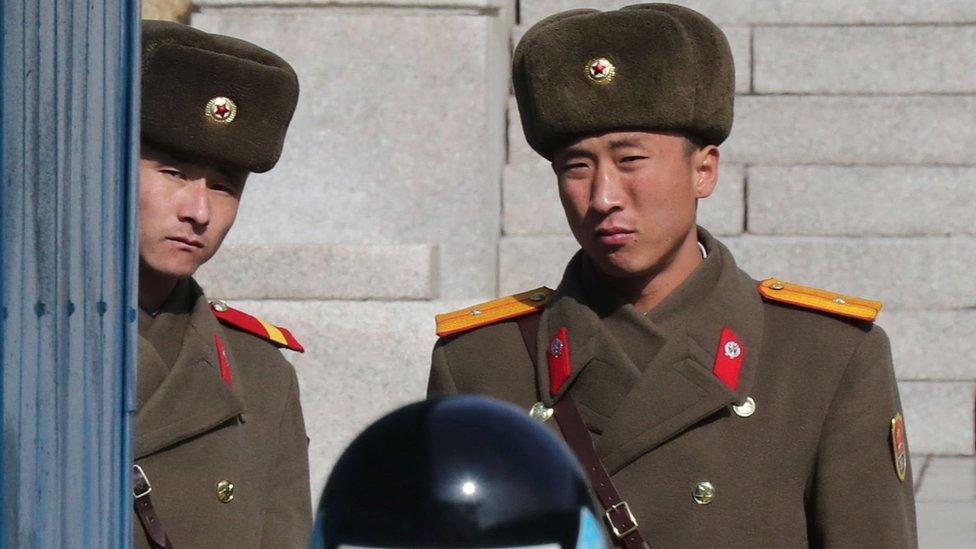Kim Jong-nam: Body 'arrives in Pyongyang' in exchange deal
- Published
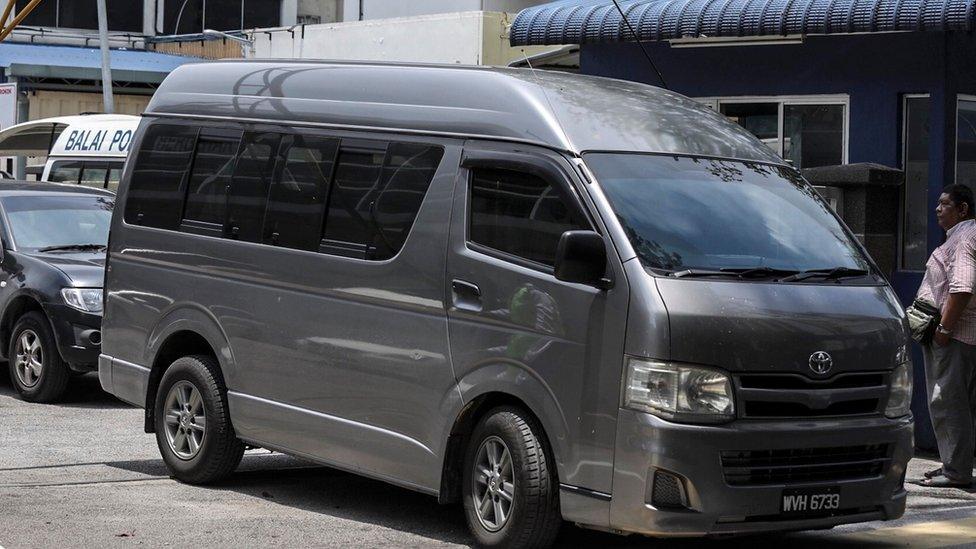
The body was believed to have been driven from the mortuary in Kuala Lumpur to the city's airport in this van
The body of Kim Jong-nam, half brother of North Korean leader Kim Jong-un, has arrived in Pyongyang, Chinese officials say.
North Korea had requested the body, but has not confirmed its identity.
It was released as part of a deal under which nine Malaysians previously prevented from leaving North Korea have now arrived home.
The two countries had been locked in a diplomatic row in the wake of Mr Kim's murder in Kuala Lumpur last month.
Both countries had banned each other's citizens from leaving.
"The body of the DPRK citizen who died in Malaysia and relevant DPRK citizens have returned to the DPRK today via Beijing," Chinese foreign ministry spokesman Lu Kang said during a regular press briefing, using the country's official name, the Democratic People's Republic of Korea.
North Korea is widely suspected of having orchestrated the killing with a nerve agent in Kuala Lumpur's airport.
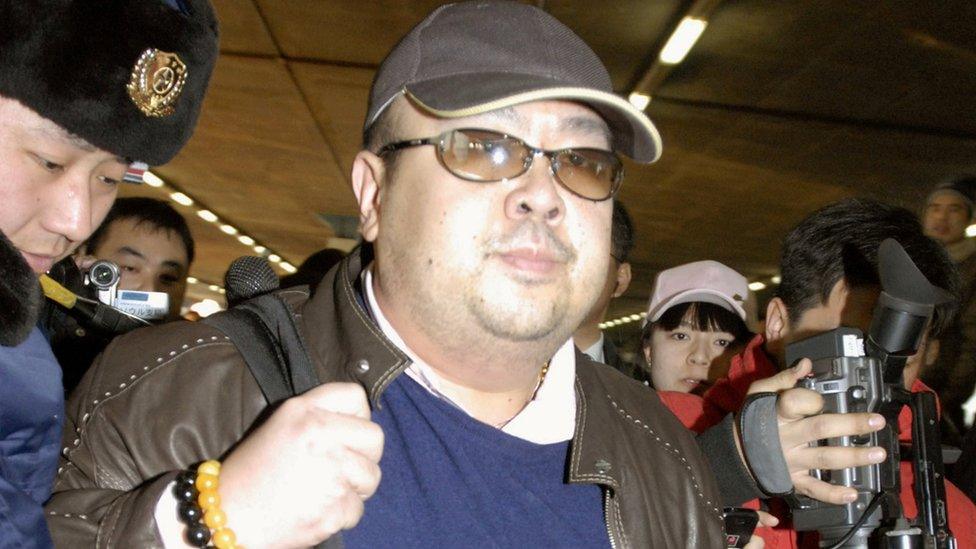
Mr Kim was the half-brother of North Korean leader Kim Jong-un
Three North Koreans who had been wanted for questioning have now been allowed to leave Malaysia, Malaysia's chief of police said.
"We have obtained whatever we wanted from them'' and are "satisfied" with the statements, Khalid Abu Bakar said.
Who requested the body?
In the wake of Mr Kim's killing on 13 February, Pyongyang reacted angrily when Malaysia refused to hand over the body immediately, without an autopsy.
Malaysian authorities said they had the right to conduct an autopsy as he had been killed on Malaysian soil, and that they would only release the body to Mr Kim's family.
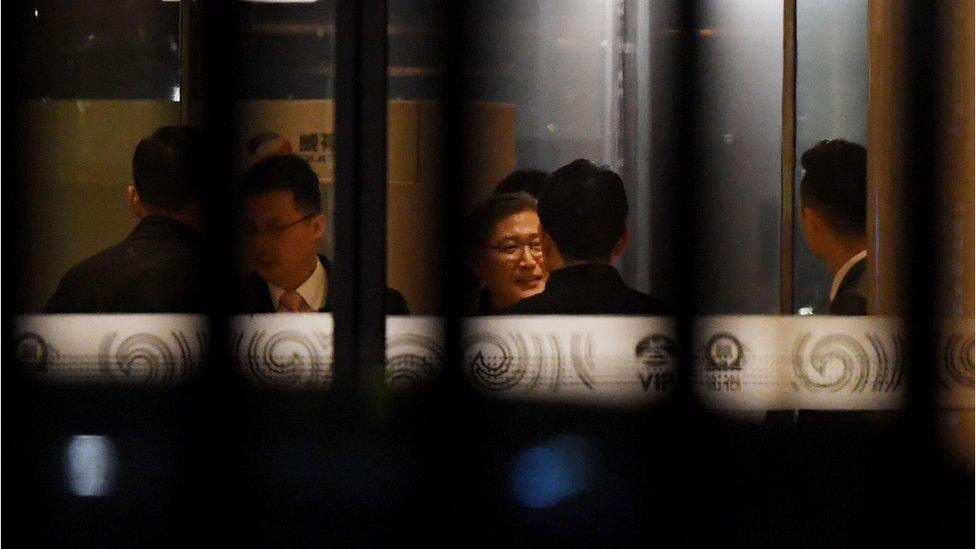
North Korean and Chinese officials were seen at Beijing airport after the plane carrying Mr Kim's body landed early on Friday
On Thursday, Mr Najib said a formal request had been received from the family, but gave no further details.
A day later, national police chief Khalid Abu Bakar said "legally speaking, Kim Jong Un is the next-of-kin" but declined to say who the request had come from.
King Jong-nam's own family previously lived in Macau but they are now thought to be in hiding.
His son Kim Han-sol appeared in a video earlier this month confirming he was with his mother and sister at an unspecified location.
Although he was the eldest son of the former North Korean leader Kim Jong-il, Kim Jong-nam was passed over for the leadership and was living outside North Korea at the time of his father's death.
How did the spat unfold?
Malaysia's refusal to hand over the body prompted a war of words. North Korea's ambassador Kang Chol accused Malaysia of colluding with "hostile forces", allegations which Kuala Lumpur dubbed as "delusions, lies and half-truths".
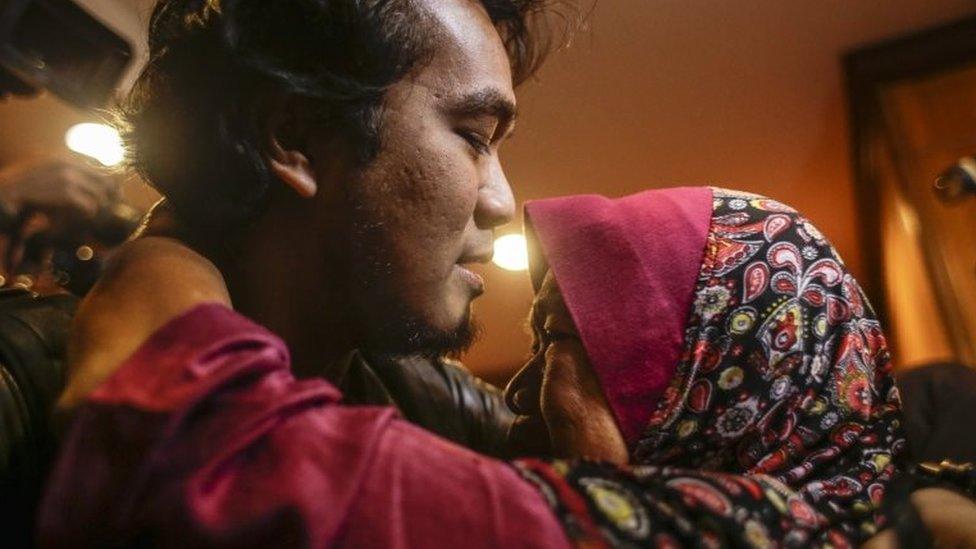
Mohd Radzuan Othman (left) was one of the nine returning Malaysian nationals
Kang Chol was expelled and the Malaysian ambassador to North Korea was also recalled.
Pyongyang then said it would ban all Malaysians in North Korea from leaving until the "situation was resolved", which Malaysia's Prime Minister Najib Razak called an "abhorrent act" that effectively held his citizens hostage.
Kuala Lumpur enacted a tit-for-tat exit ban on North Koreans.
How was it resolved?
Under the deal, the nine Malaysian nationals returned to Kuala Lumpur early on Friday, where they were met by relatives.
They include the country's counsellor to North Korea, Mohd Nor Azrin Md Zain, embassy staff, and their families.
The exact circumstances of how the deal was struck remain unclear. Malaysia's Prime Minister Najib Razak described the negotiations as "challenging".
Foreign Minister Anifah Aman hailed the exchange as a success of diplomacy and "level-headedness".
Reuters reported that television footage showed two North Koreans on the flight to Beijing with the body: Hyon Kwang Song, the second secretary at the North Korean embassy in Kuala Lumpur, and Kim Uk Il, a North Korean state airline employee.
The third was named Ri Ji U, who had been holed up with them in the North Korean Embassy, Reuters quoted the chief of police as saying.
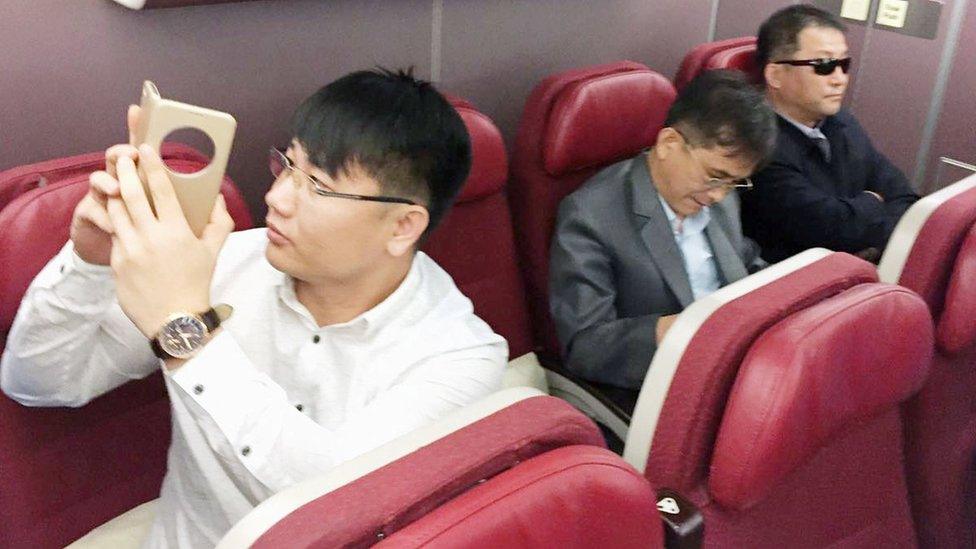
One man on the plane (left, in white) resembles Kim Uk Il, according to Kyodo
- Published30 March 2017
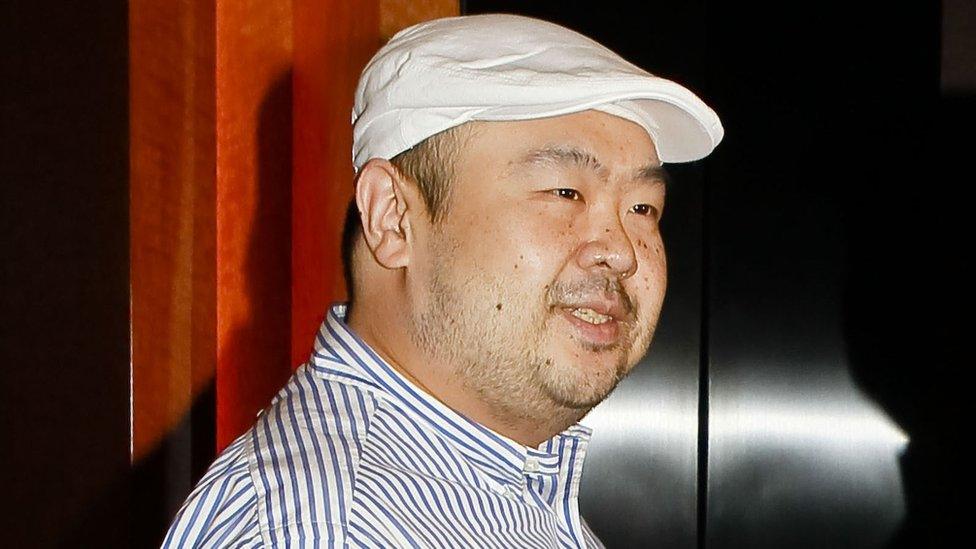
- Published8 March 2017
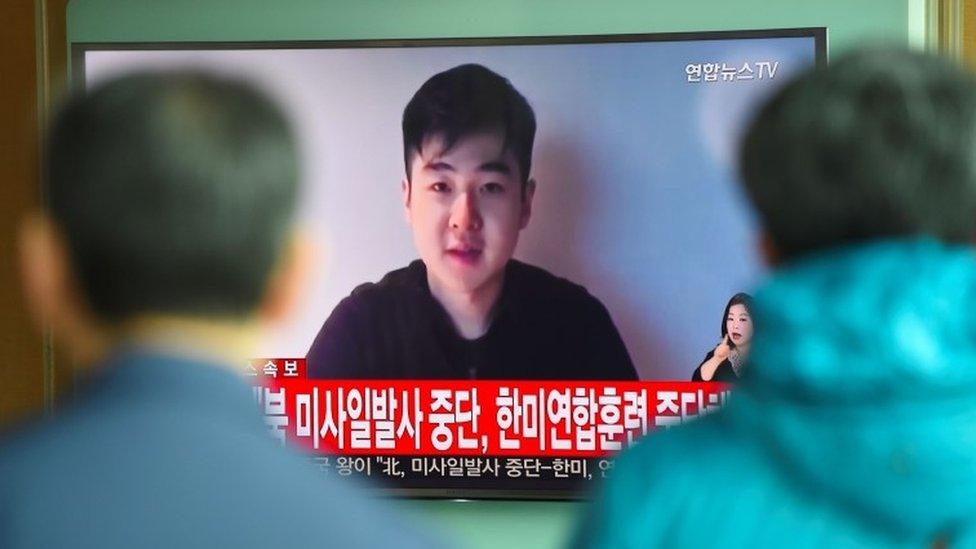
- Published9 March 2017
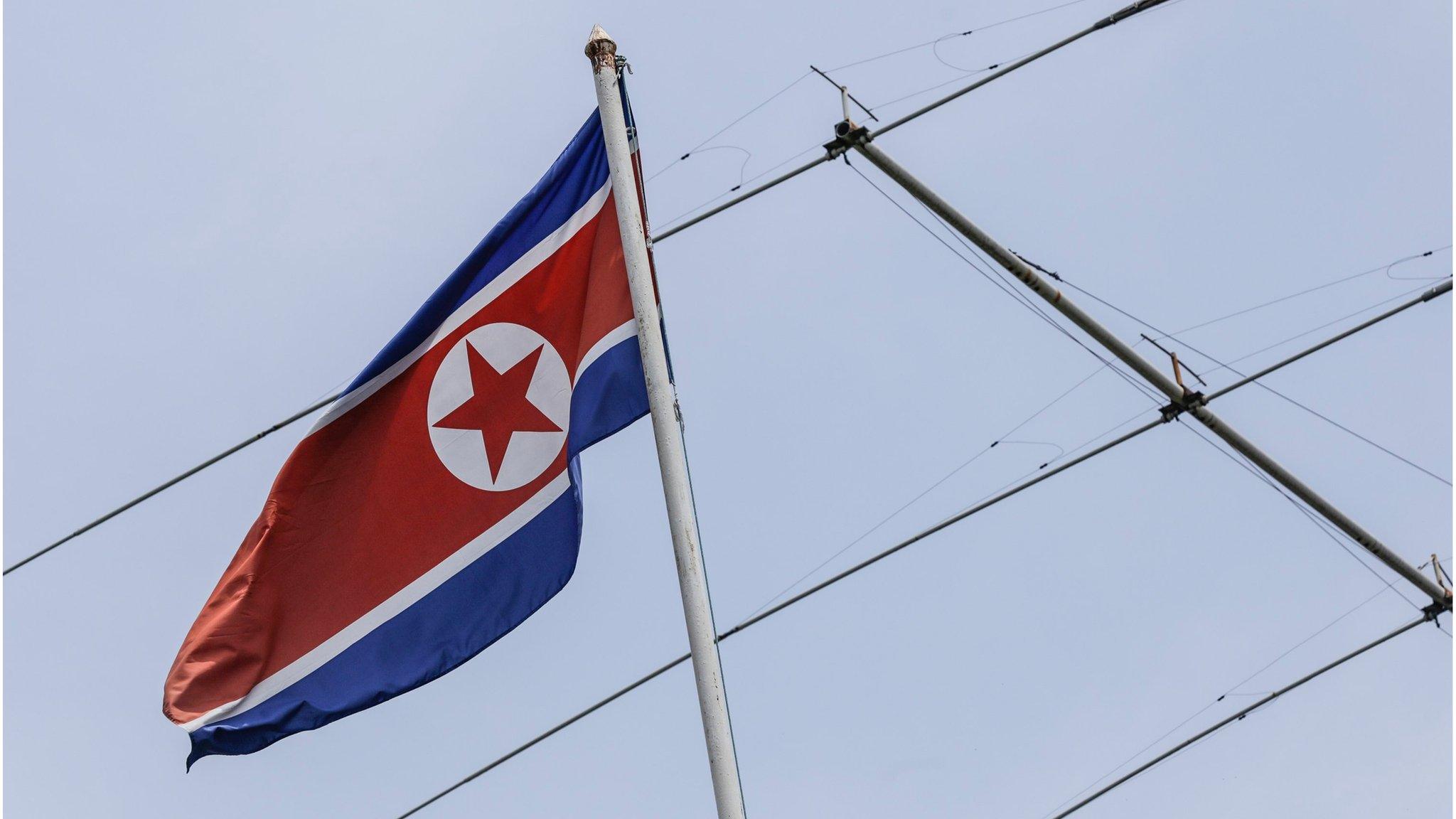
- Published2 October 2017
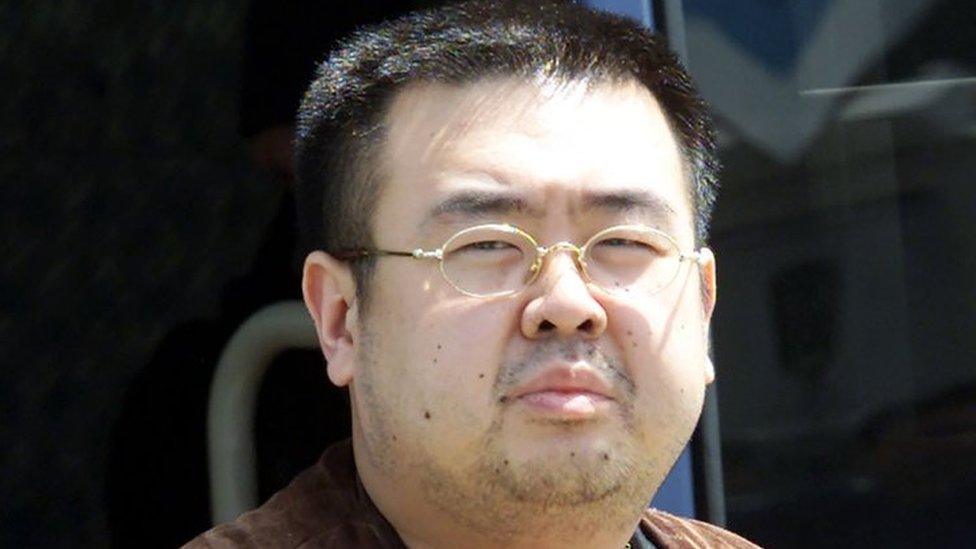
- Published24 February 2017
